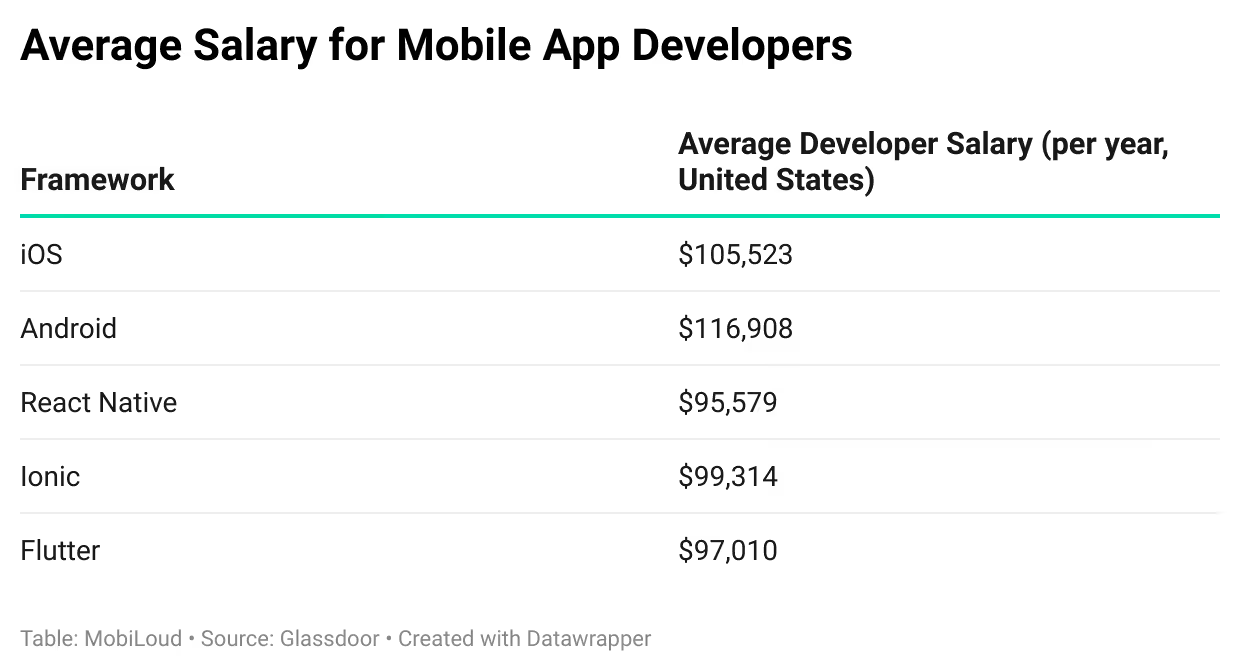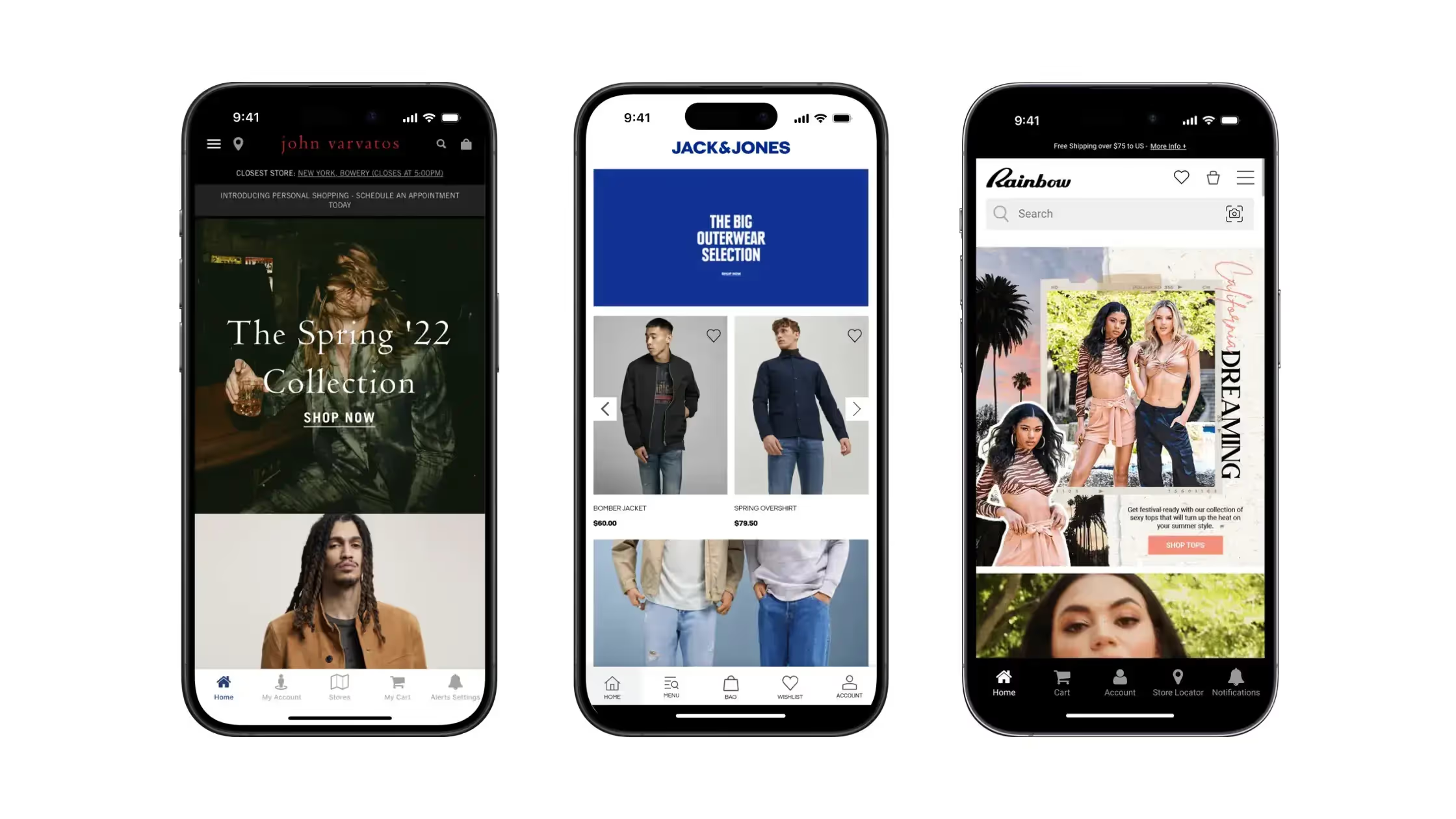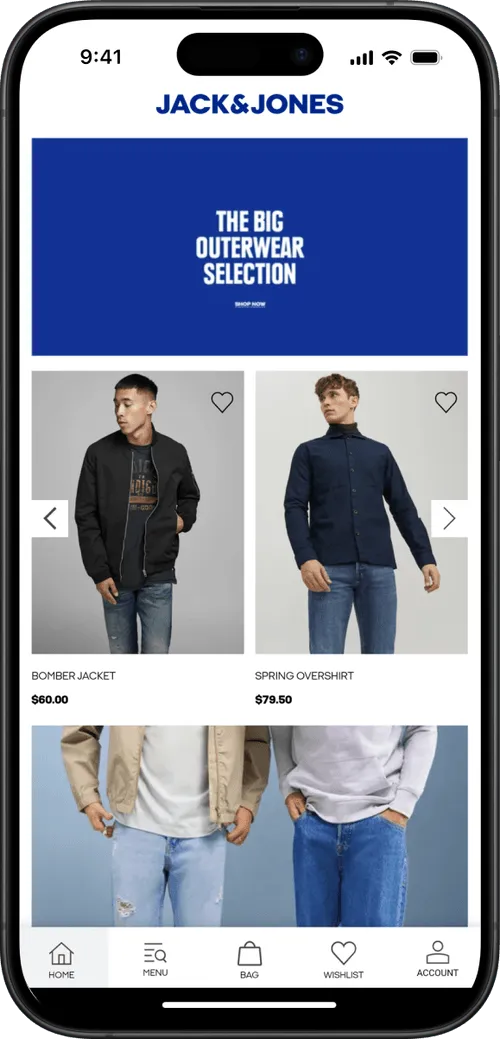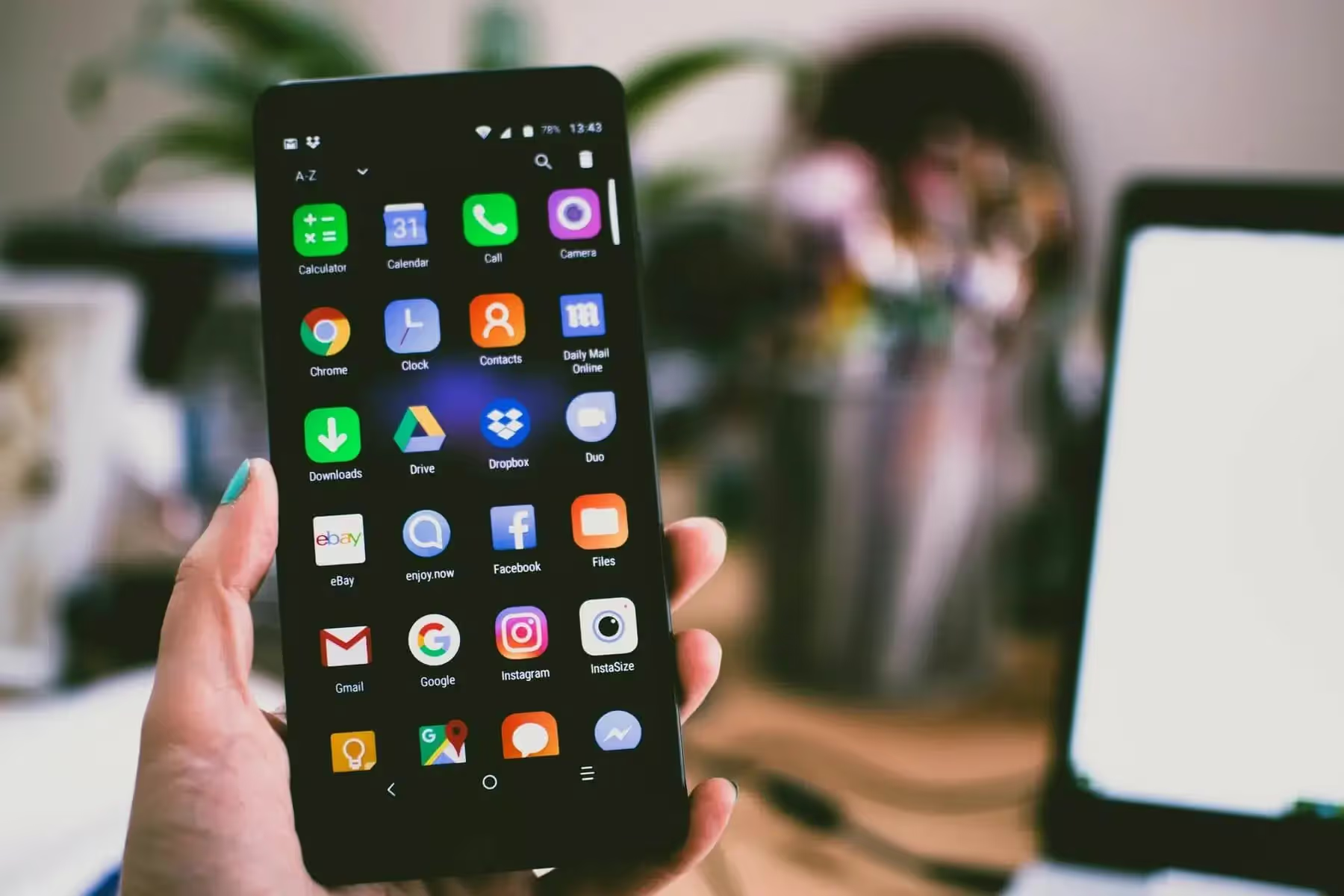How Much Does it Cost to Create an App in 2026?
The mobile app industry is booming, and your business wants in. But how much does it cost to create an app for your business?
A mobile app cost depends on a great number of factors. These include the complexity of your project, how you hire people to work on the project, and whether you want to go all out to build a fully native app.
However, if you want a benchmark for mobile app development costs, to help you get a rough idea of how much it costs to make an app, that's what we're going to give you. We'll share a range of figures, depending on your needs, and help you understand whether developing an app is viable for your business.
How Much Does it Cost to Create an App? (Native App Development)
On average, you can expect to pay anywhere from $20,000 to $300,000 to develop a native app.
This is obviously a very wide range - but don't worry, we'll look at the different factors that come into play with mobile app development cost. Once you understand this, so you can get a good idea of where on the scale your app development project will fit in.
These figures are based off various sets of data, including the rates given by app development companies (taken from sites such as GoodFirms and Clutch), the average pay rates (via Indeed) for Android developers and iOS developers, along with hourly rates for app developers found on sites like Upwork.
This is cross-referenced by the estimated time taken to create an app, partly garnered by data from app development agencies, as well as our own experiences within the app development industry.
We'll start by breaking down the average app development cost for different levels of complexity, before diving deeper into why app development costs as much as it does.
App Development Cost Breakdown by Size and Complexity
Here's a breakdown of the average cost it takes to develop an app for your business, looking at what you can expect to pay for simple, mid-level or complex mobile apps.

Let's look a little deeper into each aspect now, to help you understand where your app development budget goes.
What Contributes to the Cost of a Native App?
Native app development is a specialized field. It's not like coding a website in HTML and CSS, where you could walk down the street and your chances of finding someone capable of doing it are fairly high.
Coding a native app requires expertise in frameworks such as Java or Kotlin, for Android apps, and Objective-C or Swift for iOS apps. Since the talent pool for these frameworks is relatively shallow, these developers command a higher rate than your average developer.
There are a lot of factors on top of this that influence how much it costs to develop your app. This includes the hourly rate of the people you hire, as well as the total number of billable hours that go into your project.
Here are some of these factors:
- Developer expertise (are you hiring beginner/novice developers or more experienced talent?)
- Location (e.g. hiring developers from the US vs Asia or Eastern Europe)
- Size of team (managing developers yourself, vs hiring a full team to manage the project)
- Platforms (Android only, iOS only, or both)
- Size of the app (number of screens, depth of functionality)
- Feature set (how difficult or time-consuming is it to build?)
- API connectivity and/or third-party integrations
- Backend infrastructure
- Breadth of the QA/testing process
- Security protocols
- Urgency (if you need the project done ASAP, be prepared to pay a premium)
- Hiring freelancers vs app development agencies vs using in-house staff
As you can see, there's a ton of variance here, hence the wide range in price. The cost is largely influenced by how long your app development project takes.
The mobile app development process generally takes a long time, during which you'll be paying your development team.
More features (or more complex features) = more time to create the app = more hours billed = higher overall cost.
Keep in mind, when we're talking about building apps for your business, you'll want to launch apps for both Android and iPhone. If you build natively, that means double the app cost, as you'll need an iOS app development team and an Android app development team working separately.
How Much Time Does it Take to Create an App?
On the low end, you're looking at 2-3 months to create a simple app.
This can go up to 9 months or more for more complex apps.
With simple apps, we're talking very basic features. Something like a calendar app, a productivity tracker, a note-taking app, for example.
These apps have few screens to build, and not as many overall features. Your average mobile app developer should be able to build an app like this without much trouble. Still, it's not an overnight process, and it's going to take a couple of months, most likely.
Apps with a higher level of complexity include those with features such as payment gateways, in-app purchases, messaging features, location services, push notifications, and integrating with hardware features, like camera or bluetooth. This also includes apps that require API integrations, to your website for example, or to third-party tools.
Moderate-complexity apps like these are likely to take between 3-6 months to build, depending on the number of advanced features and the depth of the app (i.e. total number of screens).
On the higher end, if you're building apps for enterprise use, or apps with very advanced functionality, you're looking at 9+ months to completion.
These apps may require extensive work building in animations or multimedia to the UI, or building out extensive backend architectures. Also, apps that deal with a lot of sensitive data need more work on security protocols, which adds a significant amount of time to both the development and testing processes.
How Much Does it Cost to Maintain an App?
There's one more factor that you need to consider in terms of how much it costs to create an app. Maintenance.
The cost doesn't stop when you launch the app. Apps require constant updates and maintenance, which requires you to pay developers or a development agency.
Maintenance tasks end up adding hidden app development costs, which many publishers don't account for.
Some of the ongoing costs include:
- Bug fixes
- Adding new features/improving existing features
- Code optimizations and performance improvements
- UI/UX updates
- Testing & support for new OS updates
- Testing & support for updates to third-party tool integrations
These costs are likely to add up to 15 to 20% of the cost of the initial app development cost each year.
Here's what you're looking at in terms of app maintenance costs:
Simple App
- Est. App Development Cost: $20,000 - $60,000
- Est. Maintenance Cost: $3,000 - $12,000 per year
Mid-Level App
- Est. App Development Cost: $60,000 - $140,000
- Est. Maintenance Cost: $9,000 - $30,000 per year
Complex/Enterprise App
- Est. App Development Cost: $300,000+
- Est. Maintenance Cost: $45,000+ per year
These costs are unavoidable. If you neglect to maintain your app, it risks becoming at best dated, and at worst, unusable due to bugs or conflicts with external tools or platforms.
Alternatives to Native Development
Of course, building fully native apps is not the only way to create an app.
You've got cross-platform development frameworks, which cut down the total number of hours needed to create an app. There are also app builders, which cut out the need to hire developers in the first place (although they offer a much lower level of flexibility and functionality).
We'll take a quick look at each of these alternatives now.
Cross-Platform & Hybrid Frameworks
Instead of building two apps in completely different development frameworks to work on iOS and Android devices, you could go with a cross-platform framework.
These frameworks, which include React Native and Xamarin, allow you to reuse most of the code for each app. This cuts down development time, since (in theory) it will take half as long to write the app.
You've also got the option of hybrid frameworks and development tools, such as Ionic, Flutter and Cordova. These frameworks let you build hybrid apps, which reuse functionality from an existing website and create cross-platform mobile apps.
Hybrid apps are even faster to build than cross-platform native apps, since they can tweak your web UX to fit your mobile apps, instead of building apps from scratch. However, they require you to already have an active website, optimized for mobile devices, to work effectively.
Cross platform frameworks and hybrid frameworks all save time, but they're still fairly specialized fields in their own right. You may not need to pay for as many hours if you're building an app in React Native, for example. But the cost of these hours will be relatively equal.
Using average salaries found on Glassdoor, we can compare the cost of developers for various frameworks

As you can see, developers for these frameworks are a little cheaper on average than native app developers, but not by much.
You also still need to account for project managers, UI/UX designers, testing and all the other support staff involved in the project. So, overall, we could estimate a cross-platform app to cost around 50-75% of the cost of a building two fully native apps (iOS and Android).
No-Code App Builders
Another alternative is to use a no-code app builder.
These are tools that offer a visual drag-and-drop builder that lets you build an app without writing code.
The plus is that it costs a lot less, and anyone can create an app this way. The downside is that these tools are quite limiting, forcing you into a template that can make your app look just like a thousand others.
The majority of no-code app builders work on a subscription basis. You'll need to keep paying a monthly or annual cost to keep your app live. They have different tiers depending on what kind of features and usage limits you need for your app as well.
So how much does it cost to create an app with a no-code app builder?
It obviously depends on your needs, and the tool you choose. But here are a few examples.
- Glide ($99-$799 per month)
- Thunkable (from $38 per month)
- Softr ($29-$199 per month)
These costs are for the subscription only. You also have to take into account labor costs (building the app with the tool, planning, design, testing).
Even with labor, it's still significantly cheaper to build an app with a no-code app builder. But ultimately, we don't recommend this option, unless the app you want to build is extremely simple.
It still takes a lot of work to create a professional and functional app with a no-code app builder, and the results are generally going to be below what you could get with a fully native app, or a hybrid app - as we're going to look at next.
Hybrid App Builders
In the middle of manually coded apps and drag-and-drop app builders, you've got hybrid app builders like MobiLoud.
MobiLoud converts your website into a fully-functional mobile app, which offers >90% of the functionality of a fully native mobile app.
In this sense, it's similar in a way to the Ionic or Flutter frameworks, which use a technology called webviews to display a live window to your website within your mobile app, essentially recreating the full functionality of the website in the app.
However, MobiLoud is also a no-code app builder. It doesn't require you to hire mobile developers with a salary of $100,000 per year, or hire a team to manage the project.
The whole build is done by the MobiLoud team, who also handles updates and maintenance (for much less than you'd pay a native developer).
This makes MobiLoud the perfect option for anyone converting an existing site to mobile apps for Android and iOS. It's cheaper, faster, and the end result is not too far off what you'd get with a fully native app coded from scratch.
How Much Does it Cost to Make an App With MobiLoud?
MobiLoud is much cheaper and much faster than native development, or hiring a mobile app development company. But just how much does it cost to create an app with MobiLoud?

MobiLoud works on a subscription basis, like other no-code app builders. This cost ranges from $399-$799 per month, depending on what you need from your app, as well as whether you pay annually or month-to-month.
There's also a setup fee of $850 which covers testing and submitting your apps to the iOS App Store and Google Play Store.
Optional fees include $1,350 for the full-service package (covering the entire process from app design and figuration to launching in the app stores), and custom pricing plans for those with advanced feature and integration needs.
Let's compare the cost of building an app with MobiLoud, to the cost of a hiring developers to create a moderate-complexity app.
MobiLoud
- Setup Costs: $2,200 (initial build, first year license, plus app store submission fee)
- Ongoing Costs: $399 per month
Native App Development
- Setup Costs: $60,000 - $150,000
- Ongoing Costs: $9,000 - $30,00 per year
As for the time investment, an app with MobiLoud can be ready to go and live in the app stores in less than a month.
Even if the process ends up taking a little longer, you're looking at less than half the time it takes to build even a simple mobile app. The difference is even bigger if your app falls into the moderate or high complexity range.
You can get more details on MobiLoud' pricing here.
If this interests you, schedule a free, personalized demo, and see how MobiLoud can be your ideal mobile app development partner.
FAQs
Convert your website into a mobile app











